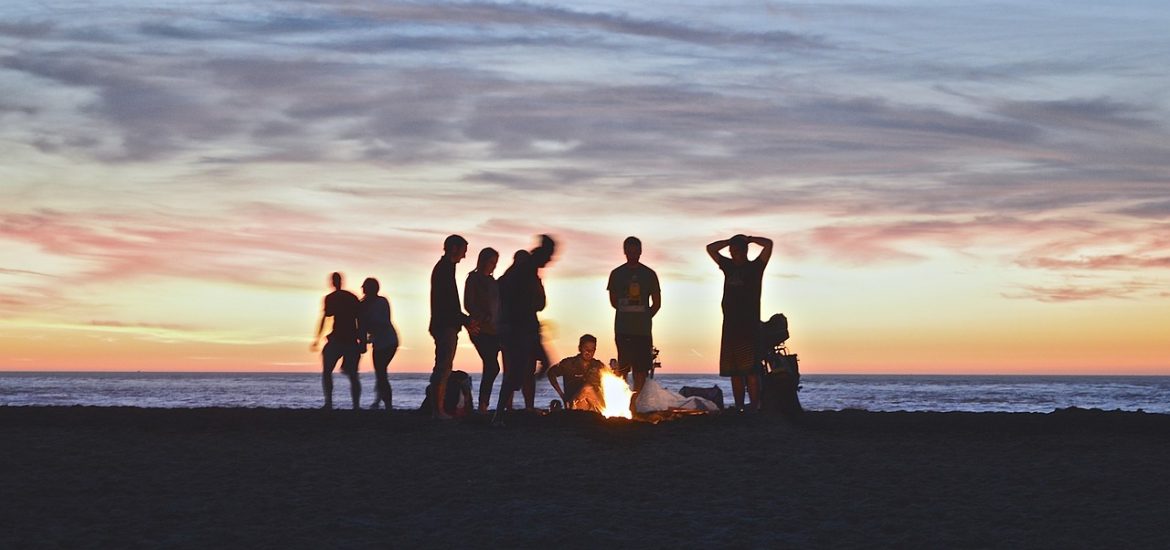Camping is an affordable activity that allows you to get away from the ordinary and try out new places and experiences, as well as meet new people who share your enjoyment of the outdoors.
Even if you’re a seasoned camper — as opposed to someone who has never had to pitch a tent or slept under the stars —it’s likely that you haven’t experienced every single one of the different types of camping styles on this list. Whether you’re searching for the perfect family-friendly campgrounds in Florida or the ideal couples glamping site in California, camping is a great way to reconnect with nature. Enhance your next camping trip with one of these awesome camping options:
-
Glamping
Imagine having the luxuries of a hotel in a tent. That’s what glamping is — also known as glamorous camping. If you like the idea of camping, but you’re not ready to actually jump into the experience of roughing it, glamping can be a great alternative.
You won’t have to pitch your own tent, sleep in a sleeping bag or build a fire. Instead, a sturdy, permanent tent will be your haven, complete with amenities, such as electricity, a real bed and a woodstove. It’s like the best of both worlds. You’ll be in a natural setting but you’ll also have luxury.
-
Canoe or Kayak Camping
By day, you travel the waterways in your canoe or kayak. By night, you stop and make camp on shore. The challenge with this type of camping is that you will have to find some way to pack enough supplies to sustain you during your journey, which you can also carry on your canoe or kayak.
Another challenge is finding places to make camp each evening. If you’re traveling along a waterway that is bordered by private land, you’ll either have to get permission from landowners in advance or find a place along the waterway that allows for public camping. Otherwise, you run the risk of trespassing.
-
RV Camping
RV camping allows you to bring your “home” with you. You’ll be able to sleep in your own bed, have your own restroom facilities and cook in your own kitchen. All you need is a campsite. Campsites for RVs are located everywhere and are available for a modest cost.
RVs come in a variety of sizes and styles — from the tiniest teardrop camper to a luxury motorhome. And if you’re worried about maintaining another vehicle, check into motorhome warranty insurance, which can give you peace of mind and save you tons of money on repairs even if you breakdown on the road.
-
Backpacking
Backpacking is one of the most basic forms of camping because you only have with you what you can carry in your backpack. Many backpackers insist on only carrying ultralight backpacks, which is probably a wise decision if you are an inexperienced backpacker.
Between the excessive walking in different types of environments and weather, having a manageable load on your back is paramount. You truly immerse yourself in nature and the whole camping experience with this option, and you might find you miss backpacking once you return to civilization. Outdoor adventures such as backpacking demand a tough backpack, check out these 10 popular tactical backpack brands.
-
Bicycle or Motorcycle Camping
Depending on your preference for speed of travel and level of exertion, you can choose bicycle or motorcycle camping. Again, you won’t have much room to transport supplies, but the beauty of this option is that you can stay in hostels or other lodging while out on the road.
You can also choose to stay in a park or other camping area where you can pop a tent. Organization and light packing are key for this option.
-
Survival-Style Camping
If you’ve ever watched any of those survival camping shows on TV, you already have a good grasp of what this type of camping is like. You’ll bring only a few supplies and then depend on Mother Nature to provide you with everything else you’ll need to survive.
Some self-study and preparation regarding how to survive in the wilderness is needed before embarking on this type of journey. Otherwise, you could put yourself and anyone who is with you in a dangerous situation.
-
Overlanding
When overlanding, you’ll take an extended journey in an off-road vehicle to a remote area with the object of being as self-reliant as possible. Depending on your mode of travel — you can travel by anything from a bike to a truck — you’ll be able to pack more or less supplies.
If you’re planning to be gone a long time, you’ll want to plan your journey in such a way that you end up close to towns where you can replenish your supplies from time to time.

